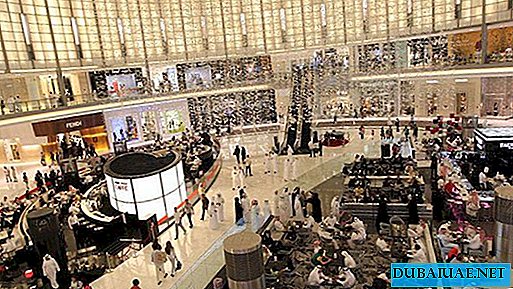 Text: Dmitry Berezin
Text: Dmitry Berezin IMMEDIATELY AFTER THE APPEARANCE OF THE FIRST "SMART HOUSES" BEFORE PEOPLE, THE QUESTION HOW TO MANAGE THIS "INTELLECTUAL MONSTER", WITHOUT AN ENGINEERING EDUCATION. SEARCH FOR SOLVING THE PROBLEM Brought us to INTRA HOUSE.
In front of me is the most recognizable spire of the main building of Dubai Silicon Oasis - Headquarters. They are already waiting for me on the glass bridge leading to the main entrance to the building. Having plunged into the coolness of the hi-tech building, I take the elevator and find myself in the even more high-tech office of Intra House.
- Where do we start? With theory or visualization? - asks Sergey Shalunov, general manager of the company.
- Let's get it with visual perception.
- Then I ask here. (Sergey leads me to a large dollhouse standing on a pedestal). This is our Wonderful Intra House. We specially reduced and mounted all the equipment of the "smart home" system in a miniature house. This, in our opinion, symbolizes simplicity, accessibility. People are used to the fact that such systems are something very serious, expensive, "space". We would like to break these stereotypes.
Smart technologies are becoming available. The world is inexorably moving towards global automation. This is a steady trend. Look, two years ago ordinary cell phones prevailed over smartphones in the market. And last year, smartphones sold more than 1.8%.
Cars are getting smarter. Today, rain sensors, automatic low-beam dimming, cruise control, directional stability system are already included in standard equipment for low-cost models ... Why should our houses, where we spend a significant part of our lives, remain as “wooden” in terms of equipment as 50 years ago?
In the hands of Sergei appears smartphone. By touching the icon with his finger, he activates the intraHouse interface.
“The simplest and, most importantly, intuitive interface,” continues Sergey. - People have no time to read the instructions, they want to immediately find the keys to all the doors. Here is a try.
I take the smartphone in my hands. The set of icons does not really raise questions. I touch the "CCTV" icon, the picture from the surveillance camera opens. I see myself, because the camera installed in the "smart doll house" looks directly at us. I click on the "House" icon, a window opens for all systems distributed across the floors and rooms of the house.
I choose "Ground floor", "Kitchen", "Curtains" - an electric motor buzzed in the house, doll curtains in the doll kitchen "went" down. I touch the “Climate” icon, I see that the temperature in the kitchen is 22 ° C and some other parameter “30”, which speaks of air quality. I lower the temperature to 21ºС, the air conditioner in the kitchen lights up with blue backlight.
“Of course, in this case, the air conditioning is not real,” says Sergey. - But believe me, it’s much more difficult to install such a system in a doll house than in a real one. I had to make unique micro-equipment, apply a lot of non-standard solutions.
Sergey turns on the projector and an interface image appears on a large transparent glass screen.
- This is the version for tablets and computers. Size is size, it’s impossible to place all these “arts” on the small screen of a smartphone. Visually, the tablet version is more convenient, but the functionality is almost the same.
He touches an unusual screen with his hand. - intraActiveScreen - an interactive screen for exhibitions, presentations and show rooms. This is also our product.
 Sergey, could you voice the main arguments in favor of housing automation? In any case, the smart home system simply cannot be cheap. Why, for example, is she to a person who spends most of his time outside his home?
Sergey, could you voice the main arguments in favor of housing automation? In any case, the smart home system simply cannot be cheap. Why, for example, is she to a person who spends most of his time outside his home?
Sergey: It depends on what you mean by “cheap”. Everything is very relative. If an intelligent CCTV camera appears in your system that recognizes your child and opens the front door, it will be a little more expensive than just controlling the light and climate. In any case, the cost of such a system is comparable to not very expensive cars. Why does a busy person need this?
Firstly, to save time. You do not need to participate in many small daily processes - an automated system controls everything independently. For example, you don’t have to go around the house to open or close the curtains, turn off the lights, raise the temperature in the nursery ... Secondly, for security reasons. I'm not just talking about signaling or CCTV. Water leakage, gas leakage, CO2 concentration in the garage and much more. You can also control your home from across the ocean. To do this, you only need Internet access. No Internet - manage via SMS. Thirdly, you can control the energy consumption. By setting up Save Energy System (SES), you can prevent energy consumption from exceeding the kilowatt per hour value you define. You watch TV, the washing machine is working, the lights are on - the maximum energy consumption at the limit. At this time, the air conditioner is turned on to maintain the set temperature. Energy consumption exceeds the limit - and the system turns off the device that has the least value for you according to your understanding. Energy consumption remains normal, and you pay monthly only the money that you planned.
Almost everything that you offer, the customer can purchase separately. There are many offers on the market of security systems, climate control, pool automation ...
Sergey: Do you think it's convenient to have a lot of control panels built into the walls or lying in a pile on the coffee table? We simply combine all systems in one convenient interface. To manage them you only need your own smartphone and one "home" tablet for convenience.
Are we talking only about private homes?
Sergey: Absolutely about any format of housing - villas, apartments, penthouses. And also about any commercial real estate, including industrial premises.
At commercial sites, the use of automated systems is now quite common. I think you have serious competition in this sector. How to surprise a corporate client?
Sergey: In fact, competition is high in all sectors. Surprising a customer today is really not easy. We do not set ourselves such a task. The corporate client is good at counting. In most cases, he knows what he wants. For example, the capitalization of a shopping mall equipped with a control automation system, on average, becomes 7% higher. With the cost of the mall at $ 150 million, this figure is not comparable with the real costs of such equipment. The hotel, which offers its customers a smart interface in each room, which allows you to control lighting, climate, curtains, and the Do Not Disturb information panel for the maid without getting out of bed, also has a competitive advantage. In addition, if the room is not occupied by anyone, the air conditioner does not work in it. When the number is put on the reservation in the electronic system while waiting for the client, the automation itself turns on the climate control an hour before the arrival time and intensively cools it. So in a year quite serious money is saved by the hotel.
Sergey, Intra House is from Russia, as I understand it. Why emirates?
Sergey: Our chairman of the board of directors and my partner Vladimir Maltsev is the main developer of the project. First of all, this is his long history of creating and finalizing our products - intraHouse software and ihServer microserver. We have already equipped many private and commercial facilities - in Russia and abroad. We have a high-quality staff of developers and other specialists. Now we enter the world market. And the most convenient place for this was Dubai. Good logistics, the opportunity to bring Russian specialists and recruit foreign. Plus, the Middle East market today is very, very interesting for high technology.
Leaving the Intra House office, I did not have one hundred percent certainty that “smart technologies” had already become quite affordable. But the desire of the team of Sergey Shalunov to make them such prompts a glimpse into the future. Who knows how smart our homes will be soon? And someone has already become ...












